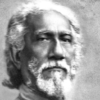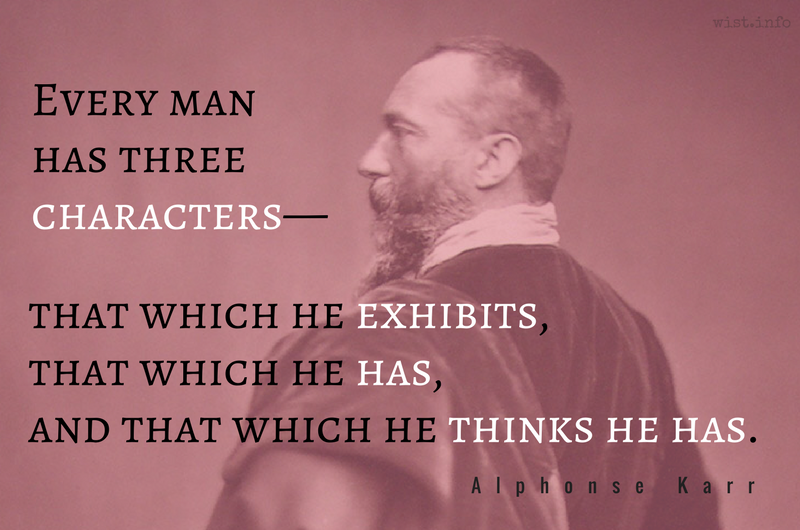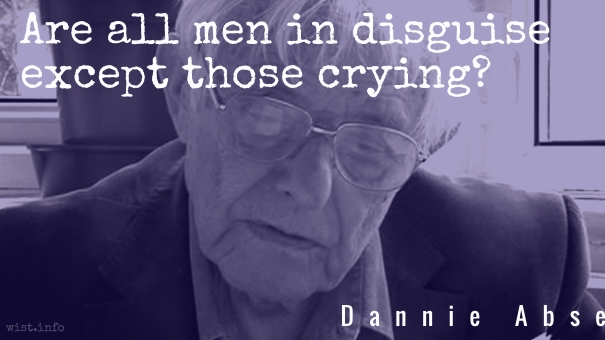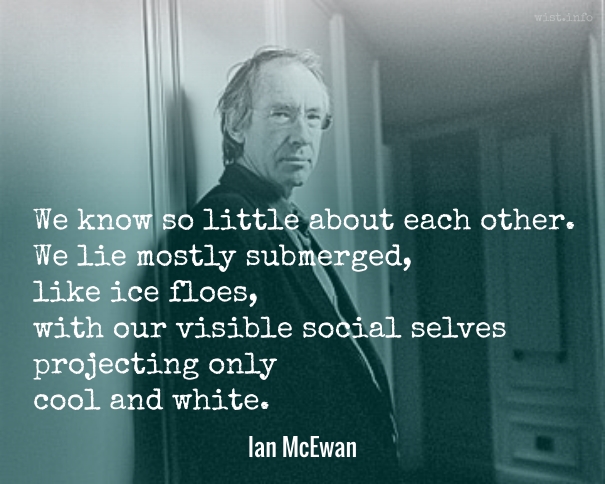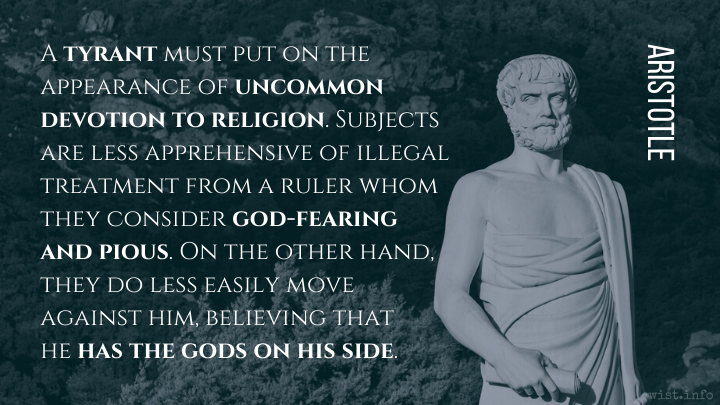The world’s a theatre, the earth a stage,
Which God and Nature do with actors fill.
Kings have their entrance in due equipage,
And some there parts play well, and others ill.The best no better are (in this theater),
Where every humor’s fitted in his kinde;
This a true subiect acts, and that a traytor,
The first applauded, and the last confin’d;This plays an honest man, and that a knave,
A gentle person this, and he a clowne,
One man is ragged, and another brave:
All men have parts, and each man acts his own.Thomas Heywood (1570s-1641) English playwright, actor, author
Apology for Actors, “The Author to his Booke” (1612)
(Source)
See Shakespeare (1599).
Quotations about:
facade
Note not all quotations have been tagged, so Search may find additional quotes on this topic.
Desire to appear clever often prevents our becoming so.
[Le désir de paraître habile empêche souvent de le devenir.]
François VI, duc de La Rochefoucauld (1613-1680) French epigrammatist, memoirist, noble
Réflexions ou sentences et maximes morales [Reflections; or Sentences and Moral Maxims], ¶199 (1665-1678) [tr. Tancock (1959)]
(Source)
Found in the 1st (1665) ed. In manuscript, it added:... parce qu’on songe plus à le paroître aux autres qu’à être effectivement ce qu’il faut être. [... because we think more about appearing so to others than actually being what we must be.]
The theme of seeming/appearing runs all through La Rochefoucauld's maxims. See also ¶127, ¶134, ¶245, ¶431, ¶457.
(Source (French)). Other translations:The desire to be thought a wise Man, oftentimes hinders ones coming to be really such.
[tr. Stanhope (1694), ¶200]The desire of appearing to be persons of ability often prevents our being so.
[pub. Donaldson (1783), ¶1, ed. Lepoittevin-Lacroix (1797), ¶190]Never are we made so ridiculous by the qualities we have, as by those we affect to have. An affectation of wisdom often prevents our becoming wise.
[ed. Carvill (1835), ¶19]The desire of appearing clever often prevents our becoming so.
[ed. Gowens (1851), ¶208]The desire to appear clever often prevents our being so.
[tr. Bund/Friswell (1871), ¶199; tr. Stevens (1939), ¶199]The desire to appear clever often prevents a man from being so.
[tr. FitzGibbon (1957), ¶199]The desire to seem clever often prevents our being so.
[tr. Kronenberger (1959), ¶199]The desire to appear intelligent, often prevents us from actually becoming so.
[tr. Whichello (2016) ¶199]
With the election coming on, you are going to be fed a lot of hooey about a lot of things. Naturally both sides are going to put their best side forward.
They are now trying to figure out which side is their best.
Luv kan’t liv on buty; it must hav sum hash, or it will fade and di.
[Love can’t live on beauty; it must have some hash, or it will fade and die.]
Josh Billings (1818-1885) American humorist, aphorist [pseud. of Henry Wheeler Shaw]
Everybody’s Friend, Or; Josh Billing’s Encyclopedia and Proverbial Philosophy of Wit and Humor, ch. 281 “Variety: Bred and Butter” (1874)
(Source)
CLÉANTE: And just as there is nothing I more revere
Than a soul whose faith is steadfast and sincere,
Nothing that I more cherish and admire
Than honest zeal and true religious fire,
So there is nothing that I find more base
Than specious piety’s dishonest face.[Et, comme je ne vois nul genre de héros
Qui soient plus à priser que les parfaits dévots,
Aucune chose au monde et plus noble et plus belle
Que la sainte ferveur d’un véritable zèle,
Aussi ne vois-je rien qui soit plus odieux
Que le dehors plâtré d’un zèle spécieux.]Molière (1622-1673) French playwright, actor [stage name for Jean-Baptiste Poquelin]
Tartuffe, or the Hypocrite [Le Tartuffe, ou L’Imposteur], Act 1, sc. 6 (1669) [tr. Wilbur (1963), 1.5]
(Source)
The references to plaster, whitewashing, etc., come from the Bible, Matthew 23:27-28, condemning hypocrisy.
(Source (French)). Alternate translations:And as I see no Character in Life more great or valuable than to be truly devout, nor any thing more noble, or more beautiful, than the Fervor of a sincere Piety; so I think nothing more abominable than the outside Daubing of a pretended Zeal.
[tr. Clitandre (1672)]And as I know no character more worthy of esteem than the truly devout, nor anything in the world more noble or beautiful than the holy fervour of sincere piety, so I know nothing more odious than the whited sepulchre of a pretended zealot, than those downright imposters, those devotees for public show.
[tr. Van Laun (1876)]And as I know nothing in the world so noble and so beautiful as the holy fervour of genuine piety, so there is nothing, I think, so odious as the whitewashed outside of a specious zeal.
[tr. Wall (1879)]And as I see nothing in life more noble or beautiful than the fervour of sincere piety, so I think nothing more odious than the plastered exterior of a false zeal.
[tr. Mathew (1890)]And since I do not know any character more admirable than the truly devout, nor anything in the world more noble and more beautiful than the righteous fervor of a sincere piety, neither do I know anything more odious than the whited sepulchre of a specious zeal.
[tr. Waller (1903)]And as I find no kind of hero more
To be admired than men of true religion,
Nothing more noble or more beautiful
Than is the holy zeal of true devoutness;
Just so I think there's naught more odious
Than whited sepulchres of outward unction.
[tr. Page (1909)]And as I see no kind of character
More honorable than true devotion is,
Nothing more noble and more beautiful
Than fervent, genuine, holy piety,
So I find nothing on earth more odious
Than the false show of whited sepulchres.
[tr. Bishop (1957)]And, as there are no heroes I revere
More than those whose devoutness is sincere,
And nothing worthier of veneration
Than genuine religious dedication,
So, nothing seems more odious to me
Than the disguise of specious piety.
[tr. Frame (1967)]What jewel more precious can there be
Than perfect, unfeigned piety,
A fervour that is felt, and real?
But this ... this squashed flea kind of zeal,
Worn, as a lady wears her paint,
The posturing of the plaster saint,
This, above all things, I deplore.
Nothing on earth disgusts me more.
[tr. Bolt (2002)]I don’t know any heroes more worthy of respect than the truly pious or anything more noble and beautiful than holy passion and saintly zeal. And I don’t know anything more hateful than those whited sepulchres, the phony zealots.
[tr. Steiner (2008)]
If thou art virtuous meerly that thou may’st be famed for it, thou art no better than a vain-glorious Sinner.
Thomas Fuller (1654-1734) English physician, preacher, aphorist, writer
Introductio ad Prudentiam, Vol. 2, # 2008 (1727)
(Source)
“Happy as a king,” iz a libel on happiness, and on the king to.
[“Happy as a king,” is a libel on happiness, and on the king, too.]
Josh Billings (1818-1885) American humorist, aphorist [pseud. of Henry Wheeler Shaw]
Everybody’s Friend, Or; Josh Billing’s Encyclopedia and Proverbial Philosophy of Wit and Humor, ch. 156 “Affurisms: Embers on the Harth” (1874)
(Source)
“Lucky we know the forest so well, or we might get lost,” said Rabbit half an hour later, and he gave the careless laugh which you give when you know the Forest so well that you can’t get lost.
A. A. Milne (1882-1956) English poet and playwright [Alan Alexander Milne]
House at Pooh Corner, ch. 7 “Tigger Is Unbounced” (1928)
(Source)
Alas for you, scribes and Pharisees, you hypocrites! You who are like whitewashed tombs that look handsome on the outside, but inside are full of dead men’s bones and every kind of corruption. In the same way you appear to people from the outside like good honest men, but inside you are full of hypocrisy and lawlessness.
[Οὐαὶ ὑμῖν, γραμματεῖς καὶ Φαρισαῖοι ὑποκριταί, ὅτι παρομοιάζετε τάφοις κεκονιαμένοις, οἵτινες ἔξωθεν μὲν φαίνονται ὡραῖοι, ἔσωθεν δὲ γέμουσιν ὀστέων νεκρῶν καὶ πάσης ἀκαθαρσίας. οὕτως καὶ ὑμεῖς ἔξωθεν μὲν φαίνεσθε τοῖς ἀνθρώποις δίκαιοι, ἔσωθεν δέ ἐστε μεστοὶ ὑποκρίσεως καὶ ἀνομίας.]
The Bible (The New Testament) (AD 1st - 2nd C) Christian sacred scripture
Matthew 23: 27-28 (Jesus) [JB (1966)]
(Source)
One of the seven condemnations Jesus makes against the scribes and Parisees (Matthew 23:13-32). While this section as a whole is paralleled in Luke 11:37-54, this particular metaphor is only in Matthew.
(Source (Greek)). Alternate translations:Woe unto you, scribes and Pharisees, hypocrites! for ye are like unto whited sepulchres, which indeed appear beautiful outward, but are within full of dead men’s bones, and of all uncleanness. Even so ye also outwardly appear righteous unto men, but within ye are full of hypocrisy and iniquity.
[KJV (1611)]How terrible for you, teachers of the Law and Pharisees! You hypocrites! You are like whitewashed tombs, which look fine on the outside but are full of bones and decaying corpses on the inside. In the same way, on the outside you appear good to everybody, but inside you are full of hypocrisy and sins.
[GNT (1966)]Alas for you, scribes and Pharisees, you hypocrites! You are like whitewashed tombs that look handsome on the outside, but inside are full of the bones of the dead and every kind of corruption. In just the same way, from the outside you look upright, but inside you are full of hypocrisy and lawlessness.
[NJB (1985)]How terrible it will be for you legal experts and Pharisees! Hypocrites! You are like whitewashed tombs. They look beautiful on the outside. But inside they are full of dead bones and all kinds of filth. In the same way you look righteous to people. But inside you are full of pretense and rebellion.
[CEB (2011)]Woe to you, scribes and Pharisees, hypocrites! For you are like whitewashed tombs, which on the outside look beautiful but inside are full of the bones of the dead and of all kinds of uncleanness. So you also on the outside look righteous to others, but inside you are full of hypocrisy and lawlessness.
[NRSV (2021 ed.)]
And when you fast, do not put on a sad face as the hypocrites do. They neglect their appearance so that everyone will see that they are fasting. I assure you, they have already been paid in full. When you go without food, wash your face and comb your hair, so that others cannot know that you are fasting — only your Father, who is unseen, will know. And your Father, who sees what you do in private, will reward you.
[Ὅταν δὲ νηστεύητε, μὴ γίνεσθε ὡς οἱ ὑποκριταὶ σκυθρωποί, ἀφανίζουσιν γὰρ τὰ πρόσωπα αὐτῶν ὅπως φανῶσιν τοῖς ἀνθρώποις νηστεύοντες· ἀμὴν λέγω ὑμῖν, ἀπέχουσιν τὸν μισθὸν αὐτῶν. σὺ δὲ νηστεύων ἄλειψαί σου τὴν κεφαλὴν καὶ τὸ πρόσωπόν σου νίψαι, ὅπως μὴ φανῇς τοῖς ἀνθρώποις νηστεύων ἀλλὰ τῷ πατρί σου τῷ ἐν τῷ κρυφαίῳ· καὶ ὁ πατήρ σου ὁ βλέπων ἐν τῷ κρυφαίῳ ἀποδώσει σοι.]
The Bible (The New Testament) (AD 1st - 2nd C) Christian sacred scripture
Matthew 6: 16-18 (Jesus) [GNT (1966)]
(Source)
No Synoptic parallels.
(Source (Greek)). Alternate translations:Moreover when ye fast, be not, as the hypocrites, of a sad countenance: for they disfigure their faces, that they may appear unto men to fast. Verily I say unto you, They have their reward. But thou, when thou fastest, anoint thine head, and wash thy face; that thou appear not unto men to fast, but unto thy Father which is in secret: and thy Father, which seeth in secret, shall reward thee openly. [KJV (1611)]When you fast do not put on a gloomy look as the hypocrites do: they pull long faces to let men know they are fasting. I tell you solemnly, they have had their reward. But when you fast, put oil on your head and wash your face, so that no one will know you are fasting except your Father who sees all that is done in secret; and your Father who sees all that is done in secret will reward you. [JB (1966)]When you are fasting, do not put on a gloomy look as the hypocrites do: they go about looking unsightly to let people know they are fasting. In truth I tell you, they have had their reward. But when you fast, put scent on your head and wash your face, so that no one will know you are fasting except your Father who sees all that is done in secret; and your Father who sees all that is done in secret will reward you.
[NJB (1985)]And when you fast, don’t put on a sad face like the hypocrites. They distort their faces so people will know they are fasting. I assure you that they have their reward. When you fast, brush your hair and wash your face. Then you won’t look like you are fasting to people, but only to your Father who is present in that secret place. Your Father who sees in secret will reward you.
[CEB (2011)]And whenever you fast, do not look somber, like the hypocrites, for they mark their faces to show others that they are fasting. Truly I tell you, they have received their reward. But when you fast, put oil on your head and wash your face, so that your fasting may be seen not by others but by your Father who is in secret, and your Father who sees in secret will reward you.
[NRSV (2021 ed.)]
The NRSV notes some early manuscripts have the Father rewarding you "openly," which the KJV uses.
When I see flags sprouting on official lapels, I think of the time in China when I saw Mao’s Little Red Book on every official’s desk, omnipresent and unread.
Bill Moyers (1934-2025) American journalist and public commentator
Essay (2003-02-28), “Patriotism and the Flag,” NOW with Bill Moyers (PBS)
(Source)
Moyers quoted the comments a few years later in a speech to the National Conference for Media Reform (St Louis) (2005-05-15); the phrase is often cited to that occasion.
That integrity that lives only on opinion would starve without it; and that theatrical kind of virtue, which requires publicity for its stage, and an applauding world for an audience, could not be depended on in the secrecy of solitude, or the retirement of a desert.
Charles Caleb "C. C." Colton (1780-1832) English cleric, writer, aphorist
Lacon: Or, Many Things in Few Words, Vol. 1, § 236 (1820)
(Source)
If one’s thoughts were written on one’s face, many would need masks.
Minna Antrim (1861-1950) American epigrammatist, writer
Naked Truth and Veiled Allusions (1902)
(Source)
There are well-dressed foolish ideas just as there are well-dressed fools.
[Il y a des sottises bien habillées, comme il y a des sots très bien vêtus.]Nicolas Chamfort (1741-1794) French writer, epigrammist (b. Nicolas-Sébastien Roch)
Products of Perfected Civilization [Produits de la Civilisation Perfectionée], Part 1 “Maxims and Thoughts [Maximes et Pensées],” ch. 1, ¶ 40 (1795) [tr. Hutchinson (1902), “The Cynic’s Breviary”]
(Source)
(Source (French)). Alternate translations:There is such a thing as well-clothed foolishness, just as there are certain very well-dressed fools.
[tr. Mathers (1926)]There are presentably dressed follies just as there are well dressed fools.
[tr. Merwin (1969)]There are some well-turned inanities, just as there are very well turned-out fools.
[tr. Pearson (1973)]There is nonsense that is well said, just as there are fools who are very well dressed.
[tr. Siniscalchi (1994)]Foolishness can seem very smart and there are some very smartly dressed fools.
[tr. Parmée (2003), ¶34]
Oh, you who read some song that I have sung,
What know you of the soul from whence it sprung?
Dost dream the poet ever speaks aloud
His secret thought unto the listening crowd?
Go take the murmuring sea-shell from the shore:
You have its shape, its color and no more.
It tells not one of those vast mysteries
That lie beneath the surface of the seas.
Our songs are shells, cast out by-waves of thought;
Here, take them at your pleasure; but think not
You’ve seen beneath the surface of the waves,
Where lie our shipwrecks and our coral caves.Ella Wheeler Wilcox (1850-1919) American author, poet, temperance advocate, spiritualist
Poems of Passion, Epigraph (1883)
(Source)
False greatness is unsociable and inaccessible; as it is sensible of its weakness, it conceals itself, or at least does not show itself openly, and only allows just so much to be seen as will carry on the deceit, so as not to appear what it really is, namely, undoubtedly mean. True greatness, on the contrary, is free, gentle, familiar, and popular; it allows itself to be touched and handled, loses nothing by being seen closely, and is the more admired the better it is known.
[La fausse grandeur est farouche et inaccessible: comme elle sent son faible, elle se cache, ou du moins ne se montre pas de front, et ne se fait voir qu’autant qu’il faut pour imposer et ne paraître point ce qu’elle est, je veux dire une vraie petitesse. La véritable grandeur est libre, douce, familière, populaire; elle se laisse toucher et manier, elle ne perd rien à être vue de près; plus on la connaît, plus on l’admire.]Jean de La Bruyère (1645-1696) French essayist, moralist
The Characters [Les Caractères], ch. 2 “Of Personal Merit [Du Mérite Personnel],” § 42 (2.42) (1688) [tr. Van Laun (1885)]
(Source)
(Source (French)). Alternate translations:False Greatness is unsociable, inaccessible, as if 'twere sensible of its weakness, and strove to conceal it. 'Twill not be seen, except just so much, as may carry on the Deceit, but dares not shew its Face for fear of being discover'd: Discover'd how really little and mean it is. True Greatness, on the contrary, is free, complaisant, familiar, popular, suffers it self to be touch'd and handl'd, loses nothing by being view'd near at hand, is rather more known and admir'd for it.
[Bullord ed. (1696)]False greatness is unsociable and remote: conscious of its own frailty, it hides, or at least averts its face, and reveals itself only enough to create an illusion and not be recognized as the meanness that it really is. True greatness is free, kind, familiar and popular; it lets itself be touched and handled, it loses nothing by being seen at close quarters; the better one knows it, the more one admires it.
[tr. Stewart (1970)]
HYPOCRITE, n. One who, professing virtues that he does not respect, secures the advantage of seeming to be what he despises.
Ambrose Bierce (1842-1914?) American writer and journalist
“Hypocrite,” The Cynic’s Word Book (1906)
(Source)
Included in The Devil's Dictionary (1911). Originally published in the "Devil's Dictionary" column in the San Francisco Wasp (1885-08-22).
And, after all, what is a lie? ‘T is but
The truth in masquerade; and I defy
Historians, heroes, lawyers. priests, to put
A fact without some leaven of a lie.
The surest way to get a reputation as a liar is to pretend to be very good. The next surest way is to pretend to be very wicked.
H. L. Mencken (1880-1956) American writer and journalist [Henry Lewis Mencken]
A Little Book in C Major, ch. 2, § 7 (1916)
(Source)
Variants:LlAR. (a) One who pretends to be very good; (b) one who pretends to be very bad.
[A Book of Burlesques, "The Jazz Webster" (1924)]Liar — (a) One who pretends to be very good; (b) one who pretends to be very bad.
[Chrestomathy, ch. 30 "Sententiae" (1949)]
All is not gold that glisters.
George Herbert (1593-1633) Welsh priest, orator, poet.
Jacula Prudentum, or Outlandish Proverbs, Sentences, &c. (compiler), # 306 (1640 ed.)
(Source)
In great actions men show themselves as they ought to be, in small actions as they are.
[Dans les grandes choses, les hommes se montrent comme il leur convient de se montrer; dans les petites, ils se montrent comme ils sont.]
Nicolas Chamfort (1741-1794) French writer, epigrammist (b. Nicolas-Sébastien Roch)
Products of Perfected Civilization [Produits de la Civilisation Perfectionée], Part 1 “Maxims and Thoughts [Maximes et Pensées],” ch. 1, ¶ 52 (1795) [tr. Hutchinson (1902), “The Cynic’s Breviary”]
(Source)
(Source (French)). Alternate translations:In great matters men show themselves as they ought; in little, as they are.
[tr. Mathers (1926)]In affairs of importance, men show themselves at their best advantage; in small matters they are seen as they are.
[tr. Merwin (1969)]In great things, men show themselves as they want to be seen; and in little ones they show themselves as they are.
[tr. Siniscalchi (1994)]In important matters, men display themselves as they want to be seen; in minor matters as they really are.
[tr. Parmée (2003), ¶45]
The great majority of us are required to live a life of constant, systematic duplicity. Your health is bound to be affected if, day after day, you say the opposite of what you feel, if you grovel before what you dislike and rejoice at what brings you nothing but misfortune. Your nervous system isn’t a fiction, it’s a part of your physical body, and your soul exists in space and is inside you, like the teeth in your head. You can’t keep violating it with impunity.
Boris Pasternak (1890-1960) Russian poet, novelist, and literary translator
Doctor Zhivago [До́ктор Жива́го], Part 2, ch. 15 “Conclusion,” sec. 6 [Yury] (1955) [tr. Hayward & Harari (1958), UK ed.]
(Source)
Alternate translations:The great majority of us are required to live a life of constant, systematic duplicity. Your health is bound to be affected if, day after day, you say the opposite of what you feel, if you grovel before what you dislike and rejoice at what brings you nothing but misfortune. Our nervous system isn’t just a fiction, it’s a part of our physical body, and our soul exists in space and is inside us, like the teeth in our mouth. It can’t be forever violated with impunity.
[tr. Hayward & Harari (1958), US ed.]A constant, systematic dissembling is required of the vast majority of us. It’s impossible, without its affecting your health, to show yourself day after day contrary to what you feel, to lay yourself out for what you don’t love, to rejoice over what brings you misfortune. Our nervous system is not an empty sound, not a fiction. It’s a physical body made up of fibers. Our soul takes up room in space and sits inside us like the teeth in our mouth. It cannot be endlessly violated with impunity.
[tr. Pevear & Volokhonsky (2010)]
There is something laughable about the sight of authors who enjoy the rustling folds of long and involved sentences: they are trying to cover up their feet.
[Man hat Etwas zum Lachen, diese Schriftsteller zu sehen, welche die faltigen Gewänder der Periode um sich rauschen machen: sie wollen so ihre Füsse verdecken.]
Friedrich Nietzsche (1844-1900) German philosopher and poet
The Gay Science [Die fröhliche Wissenschaft], Book 4, § 282 (1882) [tr. Kaufmann (1974)]
(Source)
Also known as La Gaya Scienza, The Joyful Wisdom, or The Joyous Science.
(Source (German)). Alternate translations:It is something laughable to see those writers who make the folding robes of their periods rustle around them: they want to cover their feet.
[tr. Common (1911)]There is something laughable about those writers who make the folded drapery of their period rustle around them; they want to hide their feet.
[tr. Hill (2018)]
To discern faults, though they be in fashion: Though Vice be clothed in cloth of gold, yet a good man will still know it. It is to no purpose for it to be apparelled in gold, it can never so well disguise it self but that it will be perceived to be of iron. It would cloak it self with the nobility of its Adherents, but it is never stript of its baseness, nor the misery of its slavery.
[Conocer los defectos, por más autorizados que estén. No desconozca la entereza el vicio, aunque se revista de brocado; corónase tal vez de oro, pero no por eso puede disimular el yerro. No pierde la esclavitud de su vileza aunque se desmienta con la nobleza del sujeto.]
Baltasar Gracián y Morales (1601-1658) Spanish Jesuit priest, writer, philosopher
The Art of Worldly Wisdom [Oráculo Manual y Arte de Prudencia], § 186 (1647) [Flesher ed. (1685)]
(Source)
(Source (Spanish)). Alternate translations:Recognise Faults, however high placed. Integrity cannot mistake vice even when clothed in brocade or perchance crowned with gold, but will not be able to hide its character for all that. Slavery does not lose its vileness, however it vaunt the nobility of its lord and master.
[tr. Jacobs (1892)]Know what is evil, however much worshiped it may be. Let the man of intelligence not fail to recognize it, even if clothed in brocade, or crowned with gold, because it cannot thereby hide its bane, -- slavery does not lose its infamy, however noble the master.
[tr. Fischer (1937)]Know when something is a defect, even if it looks like the opposite. Honesty should be able to recognize vice even when it dresses in brocade. Sometimes it wears a crown of gold, but even then it cannot hide its iron. Slavery is just as vile when disguised by high position.
[tr. Maurer (1992)]
Our virtues are usually only vices in disguise.
[Nos vertus ne sont le plus souvent que des vices déguisés]
François VI, duc de La Rochefoucauld (1613-1680) French epigrammatist, memoirist, noble
Réflexions ou sentences et maximes morales [Reflections; or Sentences and Moral Maxims], Epigraph (1675 ed.) [tr. Tancock (1959)]
(Source)
Added as an epigraph to the entire work in the 4th (1675) edition. A common theme in La Rochefoucauld's work, and variations of this maxim (and related thoughts) had been in the preceding editions and even this and later (see also ¶442).
(Source (French)). Alternate translations:Our Vertues are oftentimes in Reality no better than Vices disguised.
[tr. Stanhope (1694)]Our virtues are most frequently but vices disguised.
[tr. Bund/Friswell (1871)]Our virtues are mostly but vices in disguise.
[tr. FitzGibbon (1957)]Our virtues, most often, are only vices disguised.
[tr. Whichello (2016)]
As favour and riches forsake a man, we discover in him the foolishness they concealed, and which no one perceived before.
[À mesure que la faveur et les grands biens se retirent d’un homme, ils laissent voir en lui le ridicule qu’ils couvraient, et qui y était sans que personne s’en aperçût.]Jean de La Bruyère (1645-1696) French essayist, moralist
The Characters [Les Caractères], ch. 6 “Of Gifts of Fortune [Des Biens de Fortune],” § 4 (6.4) (1688) [tr. Van Laun (1885)]
(Source)
(Source (French)). Alternate translations:When Riches and Favour forsake a Man, we see presently he was a Fool, but no body could find it out in his Prosperity.
[Bullord ed. (1696)]In proportion as Riches and Favour forsake a Man, we discover he was a Fool, which no body cou'd find out in his Prosperity.
[Curll ed. (1713)]As Riches and Favour forsake a Man, we discover him to be a Fool, but no body could find it out in his Prosperity.
[Browne ed. (1752)]As a man falls out of favour and his wealth declines, we discover for the first time the ridiculous aspects of his character, which were always there but which wealth and favour had concealed.
[tr. Stewart (1970)]
If you are foolish enough to be contented, don’t show it, but grumble with the rest; and if you can do with a little, ask for a great deal. Because if you don’t you won’t get any.
Jerome K. Jerome (1859-1927) English writer, humorist [Jerome Klapka Jerome]
Idle Thoughts of an Idle Fellow, “On Getting On in the World” (1886)
(Source)
First published in Home Chimes (1885-01-24).
There are few people whom I really love, and still fewer of whom I think well. The more I see of the world, the more am I dissatisfied with it; and every day confirms my belief of the inconsistency of all human characters, and of the little dependence that can be placed on the appearance of merit or sense.
There was a time when all these things would have passed me by, like the flitting figures of a theatre, sufficient for the amusement of an hour. But now, I have lost the power of looking merely on the surface. Everything seems to me to come from the Infinite, to be filled with the Infinite, to be tending toward the Infinite. Do I see crowds of men hastening to extinguish a fire? I see not merely uncouth garbs, and fantastic, flickering lights, of lurid hue, like a trampling troop of gnomes — but straightway my mind is filled with thoughts about mutual helpfulness, human sympathy, the common bond of brotherhood, and the mysteriously deep foundations on which society rests; or rather, on which it now reels and totters.
Lydia Maria Child (1802-1880) American abolitionist, activist, journalist, suffragist
Letters from New-York, # 1, 1841-08-19 (1843)
(Source)
She weeps not for her sire if none be near,
In company she calls up many a tear.
True mourners would not have their sorrows known,
For grief of heart will choose to weep alone.[Amissum non flet cum sola est Gellia patrem,
Si quis adest, iussae prosiliunt lacrimae.
Non luget quisquis laudari, Gellia, quaerit,
Ille dolet vere, qui sine teste dolet.]Martial (AD c.39-c.103) Spanish Roman poet, satirist, epigrammatist [Marcus Valerius Martialis]
Epigrams [Epigrammata], Book 1, epigram 33 (1.33) (AD 85-86) [tr. Pott & Wright (1921)]
(Source)
"On Gellia." (Source (Latin)). Alternate translations:Gellia ne'er mourns her father's loss,
When no one's by to see,
but yet her soon commanded tears
Flow in society:
To weep for praise is but a feigned moan;
He grieves most truly, that does grieve alone.
[tr. Fletcher (1656)]When all alone, your tears withstand;
In company, can floods command.
Who mourns for fashion, bids us mark;
Who mourns indeed, mourns in the dark.
[tr. Killigrew (1695)]Gellia alone, alas! can never weep,
Though her fond father perish'd in the deep;
With company the tempest all appears
And beauteous Gellia's e'en dissolved in tears.
Through public grief though Gellia aims at praise,
'Tis private sorrow which must merit raise.
[Gentleman's Magazine (1736)]Her father dead! -- Alone no grief she knows;
Th' obedient tear at every visit flows.
No mourner he, who must with praise be fee'd!
But he, who mourns in secret, mourns indeed.
[tr. Hay (1755), 1.34]Sire-reft, alone, poor Gellia weeps no woe:
In company she bids the torrent flow.
they cannot grieve, who to be seen, can cry:
Theirs is the grief, who without witness sigh.
[tr. Elphinston (1782), Book 6, Part 3, ep. 1]Gellia, when she is alone, does not lament the loss of her father. If any one be present, her bidden tears gush forth. A person does not grieve who seeks for praise; his is real sorrow who grieves without a witness.
[tr. Amos (1858), #95 "Feigned Tears"]Gellia does not mourn for her deceased father, when she is alone; but if any one is present, obedient tears spring forth. He mourns not, Gellia, who seeks to be praised; he is the true mourner, who mourns without a witness.
[tr. Bohn's Classical (1859)]He grieves not much who grieves to merit praise;
His grief is real who grieves in solitude.
[ed. Harbottle (1897)]Gellia weeps not while she is alone for her lost father; is any one be present, her tears leap forth at her bidding. He does not lament who looks, Gellia for praise;' he truly sorrows who sorrows unseen.
[tr. Ker (1919)]Gellia, alone, ne'er weeps her sire at all;
In company the bidden tears down fall.
True grief is not for admiration shown.
He only weeps indeed, who weeps alone.
[tr. Francis & Tatum (1924), #18, 1.32]When alone, Gellia never cries for the father she lost.
If someone is with her, tears well up in her eyes,
as if ordered to fall in. If some one looks for praise,
he is not in mourning, Gellia.
He truly mourns
who mourns
alone.
[tr. Bovie (1970)]In private she mourns not the late-lamented;
If someone's by her tears leap forth on call.
Sorry, my dear, is not so easily rented.
They are true tears that without witness fall.
[tr. Cunningham (1971)]Gellia does not cry for her lost father when she's by herself, but if she has company, out spring the tears to order. Gellia, whoever seeks credit for mourning is no mourner. He truly grieves who grieves without witnesses.
[tr. Shackleton Bailey (1993)]Gellia's mourning for her father?
If by herself she doesn't bother.
But when she sees that company lurks
She opens up the waterworks.
She just wants praise for grief that's shown;
They truly grieve who weep alone.
[tr. Ericsson (1995)]When Janet is sequestered, out of view,
Then never for her father's death she cries.
But let some viewers come, just one or two,
Then tears dramatically flood her eyes.
We know from this how sad in fact she's been:
It is not grief that's only grieved when seen.
[tr. Wills (2007)]Gellia doesn't weep for her dead father
when she's alone, but tears pour on command
if someone comes. Who courts praise isn't mourning --
he truly grieves who grieves with none at hand.
[tr. McLean (2014)]Alone, Gellia never weeps over her father's death;
if someone's there, her tears burst forth at will.
Mourning that looks for praise, Gellia, is not grief:
true sorrow grieves unseen.
[tr. Powell]
The difference between narcissism and self-love is a matter of depth. Narcissus falls in love not with the self, but with an image or reflection of the self — with the persona, the mask. The narcissist sees himself through the eyes of another, changes his lifestyle to conform with what is admired by others, tailors his behavior and expression of feelings to what will please others. Narcissism is eye trouble, voluntary blindness, an agreement to keep up appearances (hence the importance of “style”) and not to look beneath the surface.
Sam Keen (b. 1931) American author, professor, philosopher
The Passionate Life, ch. 8 (1983)
(Source)
A man who parades his piety is one who, under an atheist king, would be an atheist.
[Un dévot est celui qui, sous un roi athée, serait athée.]
Jean de La Bruyère (1645-1696) French essayist, moralist
The Characters [Les Caractères], ch. 13 “Of the Fashion [De la Mode],” § 21 (13.21) (1688)
(Source)
La Bruyère notes in the original this refers to a "faux dévot."
(Source (French)). Alternate translations:An Hypocrite is one that will be an Atheist under a King that is so.
[Bullord ed. (1696)]A Devote is one, that under a King who was an Atheist, would be a Devote.
[Curll ed. (1713)]A Devoto is one, that under an atheistical King wouild be an Atheist.
[Browne ed. (1752)]A pious person is one who, under an atheistical king, would be an atheist.
[tr. Van Laun (1885)]A pious hypocrite is one who, under an atheistic king, would be an atheist.
[tr. Stewart (1970)]
Good manners without sincerity are like a beautiful dead lady.
Sri Yukteswar Giri (1855-1936) Indian monk, yogi, guru [श्रीयुक्तेश्वर गिरि, b. Priya Nath Karar]
In Paramahansa Yogananda, Autobiography of a Yogi, ch. 12 (1946)
(Source)
We must realize that man’s nature will remain the same so long as he remains man; that civilization is but a slight coverlet beneath which the dominant beast sleeps lightly and ever ready to awake.
POLITENESS, n. The most acceptable hypocrisy.
Ambrose Bierce (1842-1914?) American writer and journalist
“Politeness,” The Devil’s Dictionary (1911)
(Source)
Originally published in the "Cynic's Word Book" column in the New York American (1906-03-16) and the "Devil's Dictionary" column in the San Francisco Wasp (1906-03-21).
Politics: a Trojan horse race.
Stanislaw Lec (1909-1966) Polish aphorist, poet, satirist
More Unkempt Thoughts [Myśli nieuczesane nowe] (1964) [tr. Gałązka (1969)]
(Source)
Charming villains have always had a decided social advantage over well-meaning people who chew with their mouths open.
Many perform the foulest deeds and rehearse the fairest words.
[Πολλοὶ δρῶντες τὰ αἴσχιστα λόγους ἀρίστους ἀσκέουσιν.]
Democritus (c. 460 BC - c. 370 BC) Greek philosopher
Frag. 53a (Diels) [tr. Barnes (1987)]
(Source)
Diels citation "53a. (122 b N.) DEMOKRATES. 19.2. (Stob. II, 15, 33)" Bakewell lists this under "The Golden Sayings of Democritus." Freeman notes this as one of the Gnômae, from a collection called "Maxims of Democratês," but because Stobaeus quotes many of these as "Maxims of Democritus," they are generally attributed to the latter.
Alternate translations:
- "Many who do the basest deeds can make most learned speeches." [tr. Bakewell (1907)]
- "Many whose actions are most disgraceful practise the best utterances." [tr. Freeman (1948)].
- "Many who do the worst things prepare the best speeches." [@sentantiq (2020), fr. 54]
Few are those who wish to be endowed with virtue rather than to seem so.
[Virtute enim ipsa non tam multi praediti esse quam videri volunt.]
Marcus Tullius Cicero (106-43 BC) Roman orator, statesman, philosopher
Laelius De Amicitia [Laelius on Friendship], ch. 26 / sec. 98 (44 BC)
Common translation. Alternates:
- "For not so many desire to be endowed with virtue itself, as to seem to be so." [tr. Edmonds (1871)]
- "For there are not so many possessed of virtue as there are that desire to seem virtuous." [tr. Peabody (1887)]
- "For many wish not so much to be, as to seem to be, endowed with real virtue." [tr. Falconer (1923)]
Wit is cultured insolence.
[ἡ γὰρ εὐτραπελία πεπαιδευμένη ὕβρις ἐστίν.]
Aristotle (384-322 BC) Greek philosopher
Rhetoric [Ῥητορική; Ars Rhetorica], Book 2, ch. 12, sec. 16 (2.12.16) / 1389b.11 (350 BC) [tr. Freese (1926)]
(Source)
(Source (Greek)). Alternate translations:
Glamour. Elves are beautiful. They’ve got style. Beauty. Grace. That’s what matters. If cats looked like frogs we’d realize what nasty, cruel little bastards they are. Style. That’s what people remember.
I make this distinkshun between charakter and reputashun — reputashun iz what the world thinks ov us, charakter is what the world knows of us.
[I make this distinction between character and reputation — reputation is what the world thinks of us, character is what the world knows of us.]
Josh Billings (1818-1885) American humorist, aphorist [pseud. of Henry Wheeler Shaw]
Everybody’s Friend, Or; Josh Billing’s Encyclopedia and Proverbial Philosophy of Wit and Humor, “Lobstir Sallad” (1874)
(Source)
Judge nothing by the appearance. The more beautiful the serpent, the more fatal its sting.
William Scott Downey (fl. 19th C) American baptist missionary, aphorist
Proverbs, ch. 6, #8 (1853)
(Source)
The world oftener rewards the appearances of merit than merit itself.
François VI, duc de La Rochefoucauld (1613-1680) French epigrammatist, memoirist, noble
Réflexions ou sentences et maximes morales [Maxims], #312 (1665-1678)
(Source)
The surface of American society is, if I may use the expression, covered with a layer of democracy, from beneath which the old aristocratic colors sometimes peep.
Alexis de Tocqueville (1805-1859) French writer, diplomat, politician
Democracy in America, ch. 2 (1835) [tr. Reeve (1899)]
(Source)Alt. trans.:
- As above, but given as "... sometimes seep."
- "American society, if I may put it this way, is like a painting that is democratic on the surface but from time to time allows the old acistocratic colors to peep through." [tr. Goldhammer (2004)]
- "The surface of American society is covered with a layer of democratic paint, but from time to time one can see the old aristocratic colors breaking through."
The reward for conformity was that everyone liked you but yourself.
Rita Mae Brown (b. 1944) American author, playwright
Venus Envy, ch. 15 (1993)
(Source)
Often paraphrased in the present tense: "The reward for conformity is that everyone likes you but yourself."
There are no grades of vanity, there are only grades of ability in concealing it.
Mark Twain (1835-1910) American writer [pseud. of Samuel Clemens]
Note (1898-07-04)), Mark Twain’s Notebook, ch. 21 “In Vienna” (1935) [ed. Albert Bigelow Paine]
(Source)
While summering in Kaltenleutgeben, Austria.
The only people who can still strike us as normal are those we don’t yet know very well.
Alain de Botton (b. 1969) Swiss-British author
The Course of Love, “Irreconcilable Desires” (2016)
(Source)
It had snowed in the night, and the world looked very clean, which I knew it not to be. But illusion is nice sometimes.
No man ever stood the lower in my estimation for having a patch in his clothes; yet I am sure that there is greater anxiety, commonly, to have fashionable, or at least clean and unpatched clothes, than to have a sound conscience.
She smoothed her hair back from her forehead and looked at herself in the mirror. She looked like she always looked. It was probably a truth about tragedy, she thought, while the tragedy is going on people look pretty much the way they looked when it wasn’t.
Every man has three characters — that which he exhibits, that which he has, and that which he thinks he has.
Alphonse Karr (1808-1890) French journalist and novelist
A Tour Round My Garden [Voyage autour de mon jardin] (1851)
(Source)
Great robbers always resemble honest folk. Fellows who have rascally faces have only one course to take, and that is to remain honest; otherwise, they would be arrested off-hand.
Jules Verne (1828-1905) French novelist, poet, playwright
Around the World in Eighty Days, ch. 6 (1873)
(Source)
Are all men in disguise except those crying?
Daniel "Dannie" Abse (1923-2014) Welsh poet
Poem (1986), “Encounter at a greyhound bus station,” Ask the Bloody Horse
(Source)
A cheerful, easy countenance and behavior are very useful: they make fools think you a good-natured man, and they make designing men think you an undesigning one.
Since unhappiness excites interest, many, in order to render themselves interesting, feign unhappiness.
Joseph Roux (1834-1886) French Catholic priest
Meditations of a Parish Priest: Thoughts, ch. 5, #24 (1886)
(Source)
Many men and many women enjoy popular esteem, not because they are known, but because they are not.
Nicolas Chamfort (1741-1794) French writer, epigrammist (b. Nicolas-Sébastien Roch)
(Attributed)
(Source)
Attributed in Maturin M. Ballou, Notable Thoughts About Women, #3144 (1882). I have been unable to find an analog in various translations of Chamfort's Products of a Perfected Civilization or in any other primary source.
I don’t mind hidden depths but I insist that there be a surface.
Be wiser than other people, if you can; but do not tell them so.
Lord Chesterfield (1694-1773) English statesman, wit [Philip Dormer Stanhope]
Letter to his son, #104 (29 Nov 1745)
(Source)
In short, we can judge by nothing but Appearances, and they are very apt to deceive us. Some put on a gay chearful Outside, and appear to the World perfectly at Ease, tho’ even then, some inward Sting, some secret Pain imbitters all their Joys, and makes the Balance even: Others appear continually dejected and full of Sorrow; but even Grief itself is sometimes pleasant, and Tears are not always without their Sweetness: Besides, Some take a Satisfaction in being thought unhappy, (as others take a Pride in being thought humble,) these will paint their Misfortunes to others in the strongest Colours, and leave no Means unus’d to make you think them thoroughly miserable; so great a Pleasure it is to them to be pitied; Others retain the Form and outside Shew of Sorrow, long after the Thing itself, with its Cause, is remov’d from the Mind; it is a Habit they have acquir’d and cannot leave.
Benjamin Franklin (1706-1790) American statesman, scientist, philosopher, aphorist
“A Dissertation on Liberty and Necessity” (1725)
(Source)
Virtue and learning, like gold, have their intrinsic value: but if they are not polished, they certainly lose a great deal of their lustre; and even polished brass will pass upon more people than rough gold.
Lord Chesterfield (1694-1773) English statesman, wit [Philip Dormer Stanhope]
Letter to his son, #118 (6 Mar 1747)
(Source)
Your beauty should not come from outward adornment, such as elaborate hairstyles and the wearing of gold jewelry or fine clothes. Rather, it should be that of your inner self, the unfading beauty of a gentle and quiet spirit, which is of great worth in God’s sight.
[ὧν ἔστω οὐχ ὁ ἔξωθεν ἐμπλοκῆς τριχῶν καὶ περιθέσεως χρυσίων ἢ ἐνδύσεως ἱματίων κόσμος, ἀλλ’ ὁ κρυπτὸς τῆς καρδίας ἄνθρωπος ἐν τῷ ἀφθάρτῳ τοῦ πραέως καὶ ἡσυχίου πνεύματος ὅ ἐστιν ἐνώπιον τοῦ Θεοῦ πολυτελές.]
The Bible (The New Testament) (AD 1st - 2nd C) Christian sacred scripture
1 Peter 3: 3-4 [NIV (2011 ed.)]
(Source)
(Source (Greek)). Alternate translations:Whose adorning let it not be that outward adorning of plaiting the hair, and of wearing of gold, or of putting on of apparel;
But let it be the hidden man of the heart, in that which is not corruptible, even the ornament of a meek and quiet spirit, which is in the sight of God of great price.
[KJV (1611)]Do not dress up for show: doing up your hair, wearing gold bracelets and fine clothes; all this should be inside, in a person’s heart, imperishable: the ornament of a sweet and gentle disposition -- this is what is precious in the sight of God.
[JB (1966)]You should not use outward aids to make yourselves beautiful, such as the way you fix your hair, or the jewelry you put on, or the dresses you wear. Instead, your beauty should consist of your true inner self, the ageless beauty of a gentle and quiet spirit, which is of the greatest value in God's sight.
[GNT (1976)]Your adornment should be not an exterior one, consisting of braided hair or gold jewelry or fine clothing, but the interior disposition of the heart, consisting in the imperishable quality of a gentle and peaceful spirit, so precious in the sight of God.
[NJB (1985)]Don’t try to make yourselves beautiful on the outside, with stylish hair or by wearing gold jewelry or fine clothes. Instead, make yourselves beautiful on the inside, in your hearts, with the enduring quality of a gentle, peaceful spirit. This type of beauty is very precious in God’s eyes.
[CEB (2011)]Do not adorn yourselves outwardly by braiding your hair, and by wearing gold ornaments or fine clothing; rather, let your adornment be the inner self with the lasting beauty of a gentle and quiet spirit, which is very precious in God’s sight.
[NRSV (2021 ed.)]
Never believe in a meritocracy in which no one is funny-looking.
Teresa Nielsen Hayden (b. 1956) American editor, writer, essayist
Making Light, “Commonplaces”
(Source)
Whatever may be the success of my stories, I shall be resolute in preserving my incognito, having observed that a nom de plume secures all the advantages without the disagreeables of reputation.
Almost every man wastes part of his life in attempts to display qualities which he does not possess, and to gain applause which he cannot keep.
Samuel Johnson (1709-1784) English writer, lexicographer, critic
The Rambler, #189 (7 Jan 1752)
(Source)
No one shows himself as he is, but wears his mask and plays his part. Indeed, the whole of our social arrangements may be likened to a perpetual comedy; and this is why a man who is worth anything finds society so insipid, while a blockhead is quite at home in it.
[Allerdings zeigt Keiner sich wie er ist, sondern Jeder trägt eine Maske und spielt eine Rolle. — Ueber haupt ist das ganze gesellschaftliche Leben ein fortwährendes Komödienspielen. Dies macht es gehaltvollen Leuten insipid; während Plattköpfe sich so recht darin gefallen.]
Arthur Schopenhauer (1788-1860) German philosopher
Parerga and Paralipomena, Vol. 2, ch. 26 “Psychological Observations [Psychologische Bemerkungen],” § 315 (1851) [tr. Saunders (1890)]
(Source)
(Source (German)). Alternate translation:It is quite certain that no one shows himself as he is, but that each wears a mask and plays a role. In general, the whole of social life is a continual comedy, which the worthy find insipid, whilst the stupid delight in it greatly.
[tr. Dircks (1897)]No one reveals himself as he is; we all wear a mask and play a role.
[tr. Hollingdale (1970)]It is certain that no one shows himself as he is, but everyone wears a mask and plays a part. Generally speaking, the whole of our social life is the continuous performance of a comedy. This renders it insipid for men of substances and merit, whereas blockheads take a real delight in it.
[tr. Payne (1974)]
Appearances are deceptive.
Aesop (620?-560? BC) Legendary Greek storyteller
Fables [Aesopica], “The Wolf in Sheep Clothing” (6th C BC) [tr. Jacobs (1894)]
(Source)
Alternately, "Appearances often are deceiving." Versified by Gaius Julius Phaedrus, Fables bk. 4, as "Things are not always what they seem."
Note that there are two fables by this name. In this one, a wolf prospers by wearing a sheepskin he finds and drawing other sheep away to be eaten. In other versions, the wolf sneaks into the sheepfold wearing the skin, and then is killed and eaten by the farmer who wants sheep for dinner.
When one sees the number and variety of institutions which exist for the purposes of education, and the vast throng of scholars and masters, one might fancy the human race to be very much concerned about truth and wisdom. But here, too, appearances are deceptive. The masters teach in order to gain money, and strive, not after wisdom, but the outward show and reputation of it; and the scholars learn, not for the sake of knowledge and insight, but to be able to chatter and give themselves airs.
[Wenn man die Vielen und Mannigfaltigen Anstalten zum Lehren und Lernen un das so große Gedränge von Schülern und Meistern sieht, könnte man glauben, daß es dem Menschengeschlechte gar sehr um Einsicht und Wahrheit zu thun sei. Aber auch hier trügt der Schein. Jene lehren, um Geld zu verdienen und streben nicht nach Weisheit, sondern nach dem Schein und Kredit derselben: und Diese lernen nicht, um Kenntniß und Einsicht zu erlangen; sondern um schwätzen zu können nd sich ein Ansehn zu geben Alle dreißig Jahre nämlich tritt so ein sondern um schwätzen zu können und sich ein Ansehn zu geben.]
Arthur Schopenhauer (1788-1860) German philosopher
Parerga and Paralipomena, Vol. 2, ch. 21 “On Learning and the Learned [Über Gelehrsamkeit und Gelehrte],” § 244 (1851) [tr. Saunders (1890)]
(Source)
(Source (German)). Alternate translation:When we see the different institutions for teaching and learning and the vast throng of pupil and masters, we might imagine that the human race was very much bent on insight and truth; but here appearances are deceptive. The masters teach in order to earn money and aspire not to wisdom, but to the semblance and reputation thereof; the pupils learn not to acquire knowledge and insight, but to be able to talk and chat and to give themselves airs.
[tr. Payne (1974)]
A caustic observer once remarked that when Dr. Johnson spoke of patriotism as the last refuge of a scoundrel, “he was ignorant of the infinite possibility contained in the word ‘reform.'”
Theodore Roosevelt (1858-1919) American politician, statesman, conservationist, writer, US President (1901-1909)
Essay (1900-06), “Latitude and Longitude Among Reformers,” The Century Magazine, Vol. 60, No. 2
(Source)
Thousands upon thousands are yearly brought into a state of real poverty by their great anxiety not to be thought poor.
William Cobbett (1763-1835) English politician, agriculturist, journalist, pamphleteer
Advice to Young Men and (Incidentally) to Young Women, Letter 2, #58 (1829)
(Source)
Be on your guard against false prophets; they come to you looking like sheep on the outside, but on the inside they are really like wild wolves. You will know them by what they do. Thorn bushes do not bear grapes, and briers do not bear figs. A healthy tree bears good fruit, but a poor tree bears bad fruit. A healthy tree cannot bear bad fruit, and a poor tree cannot bear good fruit. And any tree that does not bear good fruit is cut down and thrown in the fire. So then, you will know the false prophets by what they do.
[Προσέχετε ἀπὸ τῶν ψευδοπροφητῶν, οἵτινες ἔρχονται πρὸς ὑμᾶς ἐν ἐνδύμασιν προβάτων, ἔσωθεν δέ εἰσιν λύκοι ἅρπαγες. ἀπὸ τῶν καρπῶν αὐτῶν ἐπιγνώσεσθε αὐτούς. μήτι συλλέγουσιν ἀπὸ ἀκανθῶν σταφυλὰς ἢ ἀπὸ τριβόλων σῦκα; οὕτως πᾶν δένδρον ἀγαθὸν καρποὺς καλοὺς ποιεῖ, τὸ δὲ σαπρὸν δένδρον καρποὺς πονηροὺς ποιεῖ. οὐ δύναται δένδρον ἀγαθὸν καρποὺς πονηροὺς ποιεῖν οὐδὲ δένδρον σαπρὸν καρποὺς καλοὺς ποιεῖν. πᾶν δένδρον μὴ ποιοῦν καρπὸν καλὸν ἐκκόπτεται καὶ εἰς πῦρ βάλλεται. ἄρα γε ἀπὸ τῶν καρπῶν αὐτῶν ἐπιγνώσεσθε αὐτούς.]
The Bible (The New Testament) (AD 1st - 2nd C) Christian sacred scripture
Matthew 7:15-20 (Jesus) [GNT (1976)]
(Source)
The fruit/tree part of the passage is paralleled in Luke 6:43-44, and echoed in Matthew 12:33.
(Source (Greek)). Alternate translations:Beware of false prophets, which come to you in sheep’s clothing, but inwardly they are ravening wolves. Ye shall know them by their fruits. Do men gather grapes of thorns, or figs of thistles? Even so every good tree bringeth forth good fruit; but a corrupt tree bringeth forth evil fruit. A good tree cannot bring forth evil fruit, neither can a corrupt tree bring forth good fruit. Every tree that bringeth not forth good fruit is hewn down, and cast into the fire. Wherefore by their fruits ye shall know them.
[KJV (1611)]Beware of false prophets who come to you disguised as sheep but underneath are ravenous wolves. You will be able to tell them by their fruits. Can people pick grapes from thorns, or figs from thistles? In the same way, a sound tree produces good fruit but a rotten tree bad fruit. A sound tree cannot bear bad fruit, nor a rotten tree bear good fruit. Any tree that does not produce good fruit is cut down and thrown on the fire. I repeat, you will be able to tell them by their fruits.
[JB (1966)]Beware of false prophets who come to you disguised as sheep but underneath are ravenous wolves. You will be able to tell them by their fruits. Can people pick grapes from thorns, or figs from thistles? In the same way, a sound tree produces good fruit but a rotten tree bad fruit. A sound tree cannot bear bad fruit, nor a rotten tree bear good fruit. Any tree that does not produce good fruit is cut down and thrown on the fire. I repeat, you will be able to tell them by their fruits.
[NJB (1985)]Watch out for false prophets. They come to you dressed like sheep, but inside they are vicious wolves. You will know them by their fruit. Do people get bunches of grapes from thorny weeds, or do they get figs from thistles? In the same way, every good tree produces good fruit, and every rotten tree produces bad fruit. A good tree can’t produce bad fruit. And a rotten tree can’t produce good fruit. Every tree that doesn’t produce good fruit is chopped down and thrown into the fire. Therefore, you will know them by their fruit.
[CEB (2011)]Beware of false prophets, who come to you in sheep’s clothing but inwardly are ravenous wolves. You will know them by their fruits. Are grapes gathered from thorns or figs from thistles? In the same way, every good tree bears good fruit, but the bad tree bears bad fruit. A good tree cannot bear bad fruit, nor can a bad tree bear good fruit. Every tree that does not bear good fruit will be cut down and thrown into the fire. Thus you will know them by their fruits.
[NRSV (2021 ed.)]Watch out for false prophets. They come to you in sheep’s clothing, but inwardly they are ferocious wolves. By their fruit you will recognize them. Do people pick grapes from thornbushes, or figs from thistles? Likewise, every good tree bears good fruit, but a bad tree bears bad fruit. A good tree cannot bear bad fruit, and a bad tree cannot bear good fruit. Every tree that does not bear good fruit is cut down and thrown into the fire. Thus, by their fruit you will recognize them.
[NIV (2011 ed.)]
We may also observe that a great many people do many things that seem to be inspired more by a spirit of ostentation than by heart-felt kindness; for such people are not really generous but are rather influenced by a sort of ambition to make a show of being open-handed. Such a pose is nearer akin to hypocrisy than to generosity or moral goodness.
[Videre etiam licet plerosque non tam natura liberales quam quadam gloria ductos, ut benefici videantur, facere multa, quae proficisci ab ostentatione magis quam a voluntate videantur. Talis autem sinulatio vanitati est coniunctior quam aut liberalitati aut honestati.]
Marcus Tullius Cicero (106-43 BC) Roman orator, statesman, philosopher
De Officiis [On Duties; On Moral Duty; The Offices], Book 1, ch. 14 (1.14) / sec. 44 (44 BC) [tr. Miller (1913)]
(Source)
(Source (Latin)). Alternate translations:trans.:One may also observe in a great many people, that they take a sort of pride in being counted magnificent, and give very plentifully, not from any generous principle in their natures, but only to appear great in the eye of the world; so that all their bounty is resolved into nothing but mere outside and pretense, and is nearer of kin to vanity and folly, than it is to either liberality or honesty.
[tr. Cockman (1699)]Besides we may observe, that most men, not so much from a liberal disposition, as led by some show of apparent beneficence, do acts of kindness, which seem to flow more from ostentation than from the heart. This conduct is more allied to vanity than to liberality or honour.
[tr. McCartney (1798)]For it is easy to observe, that most of them are not so much by nature generous, as they are misled by a kind of pride to do a great many things in order that they may seem to be generous; which things seem to spring not so much from good will as from ostentation. Now such a simulation is more nearly allied to duplicity than to generosity or virtue.
[tr. Edmonds (1865)]We can see, also, that a large number of persons, less from a liberal nature than for the reputation of generosity, do many things that evidently proceed from ostentation rather than from good will.
[tr. Peabody (1883)]It is also manifest that the conduct of men who are not really generous but only ambitious of the name often springs from vainglory rather than from a pure motive. Such hypocrisy, I hold, savours more of deceit than of liberality or honour.
[tr. Gardiner (1899)]It is quite clear that many individuals who are not so much innately generous as they are swayed by the vain desire to seem generous, often indulge in gestures that apparently originate in ostentation rather than in genuine open-handedness. This kind of pretense is closer to vanity than to generosity or uprightness.
[tr. Edinger (1974)]
It is one of the most difficult yet necessary things in life to learn to disdain. Disdain protects and crushes. It is a breastplate and a club. You have enemies? Why, it is the story of every man who has done a great deed or created a new idea. It is the cloud which thunders around everything, which shines. Fame must have enemies, as light must have gnats. Do not bother yourself about it; disdain. Keep your mind serene as you keep your life clear. Do not give your enemies the satisfaction of thinking that they cause you grief or pain. Be happy, be cheerful, be disdainful, be firm.
[C’est une des choses les plus difficiles et les plus nécessaires de la vie que d’apprendre à dédaigner. Le dédain protège et écrase. C’est une cuirasse et une massue. Vous avez des ennemis? Mais c’est l’histoire de tout homme qui a fait une action grande ou créé une idée neuve. C’est la nuée qui bruit autour de tout ce qui brille. Il faut que la renommée ait des ennemis comme il faut que la lumière ait des moucherons. Ne vous en inquiétez pas; dédaignez! Ayez la sérénité dans votre esprit comme vous avez la limpidité dans votre vie. Ne donnez pas à vos ennemis cette joie de penser qu’ils vous affligent et qu’ils vous troublent. Soyez content, soyez joyeux, soyez dédaigneux, soyez fort.]
Victor Hugo (1802-1885) French writer
Diary (1845-12-07), “Villemain,” Things Seen [Choses Vues], Vol. 1 (1887)
(Source)
Dictated 1845-12-03 by Hugo to Juliette Drouet.
(Source (French)). Another translation:One of the hardest and most important things in life is learning to treat things with disdain. Disdain can protect, it can crush; it’s a breastplate and a club. You’ve got enemies? Why, that’s the story of every man who has done a great deed or come up with a new idea. It’s the thundercloud around everything that shines. Fame will attract enemies just as light will attract insects. Don’t fret about it. Treat it with disdain. Keep your mind calm, just as you keep your life clean. Don’t give your enemies the satisfaction of thinking that they’re hurting you and upsetting you. Be happy and cheerful and disdainful and strong.
[tr. Blackmore (2004)]
When a resolute young fellow steps up to the great bully, the World, and takes him boldly by the beard, he is often surprised to find it comes off in his hand, and that it was only tied on to scare away the timid adventurers.
Oliver Wendell Holmes, Sr. (1809-1894) American poet, essayist, scholar
Article (1860-01), “The Professor’s Story [Elsie Venner],” ch. 2, Atlantic Monthly, Vol. 5, No. 27
(Source)
Originally serialized as “The Professor’s Story,” but collected as the novel Elsie Venner, ch. 2 (1861).
Often misattributed to Ralph Waldo Emerson.
But Yahweh said to Samuel, “Take no notice of his appearance or his height for I have rejected him; God does not see as man sees; man looks at appearances but Yahweh looks at the heart.”
The Bible (The Old Testament) (14th - 2nd C BC) Judeo-Christian sacred scripture [Tanakh, Hebrew Bible], incl. the Apocrypha (Deuterocanonicals)
1 Samuel 16: 7 [JB (1966)]
(Source)
God rejecting Eliab (and all of David's other brothers) to be the next king. Alternate translations:But the Lord said unto Samuel, Look not on his countenance, or on the height of his stature; because I have refused him: for the Lord seeth not as man seeth; for man looketh on the outward appearance, but the Lord looketh on the heart.
[KJV (1611)]But the Lord said to him, “Pay no attention to how tall and handsome he is. I have rejected him, because I do not judge as people judge. They look at the outward appearance, but I look at the heart.”
[GNT (1976)]But the Lord said to Samuel, “Do not look on his appearance or on the height of his stature, because I have rejected him, for the Lord does not see as mortals see; they look on the outward appearance, but the Lord looks on the heart.”
[NRSV (1989)]
The chief difference between free capitalism and State socialism seems to be this: that under the former a man pursues his own advantage openly, frankly, and honestly, whereas under the latter he does so hypocritically and under false pretences.
Look at a man in the midst of doubt and danger, and you will lean in his hour of adversity what he really is. It is then that true utterances are wrung from the recesses of his breast. The mask is torn off; the reality remains.
It takes a clever man to hide his cleverness.
[C’est une grande habileté que de savoir cacher son habileté.]
François VI, duc de La Rochefoucauld (1613-1680) French epigrammatist, memoirist, noble
Réflexions ou sentences et maximes morales [Reflections; or Sentences and Moral Maxims], ¶245 (1678) [tr. Heard (1917), ¶253]
(Source)
In the 1665 edition, this read: Le plus grand art d’un habile homme est celui de savoir cacher son habileté.
(Source (French)). Alternate translations:It is a Great Act of Wisdom to be able to Conceal one's being Wise.
[tr. Stanhope (1694), ¶246]It requires no small degree of ability to know when to conceal it.
[pub. Donaldson (1783), "Ability," ¶4]It is a great ability to be able to conceal one's ability.
[ed. Gowens (1851), ¶257]There is great ability in knowing how to conceal one's ability.
[tr. Bund/Friswell (1871), ¶245]It is the height of art to conceal art.
[tr. Stevens (1939), ¶245]A very clever man will know how to hide his cleverness.
[tr. FitzGibbon (1957), ¶245]It is exceedingly clever to know how to hide your cleverness.
[tr. Kronenberger (1959), ¶245]To conceal ingenuity is ingenuity indeed.
[tr. Tancock (1959), ¶245]It is great cleverness to know how to hide our cleverness.
[tr. Whichello (2016), ¶245]
It is a great piece of folly to sacrifice the inner for the outer man, to give the whole or the greater part of one’s quiet, leisure, and independence for splendor, rank, pomp, titles and honor.
[Es ist eine große Thorheit, um nach Außen zu gewinnen, nach Innen zu verlieren, d. h. für Glanz, Rang, Prunk, Titel und Ehre, seine Ruhe, Muße und Unabhängingkeit ganz oder großen Theils hinzurgeben.]
Arthur Schopenhauer (1788-1860) German philosopher
Parerga and Paralipomena, Vol. 1, “Aphorisms on the Wisdom of Life [Aphorismen zur Lebensweisheit],” ch. 2 “Personality, or What Man Is [Von dem, was einer ist]” (1851) [tr. Saunders (1890)]
(Source)
(Source (German)). Alternate translation:It is a great folly to lose the inner man in order to gain the outer, that is, to give up the whole or the greater part of one's quiet, leisure, and independence for splendor, rank, pomp, titles and honors.
[tr. Payne (1974)]
It’s a sign of considerable shrewdness to be able to make others think one is not exceptionally shrewd.
[C’est avoir fait un grand pas dans la finesse, que de faire penser de soi que l’on n’est que médiocrement fin.]
Jean de La Bruyère (1645-1696) French essayist, moralist
The Characters [Les Caractères], ch. 8 “Of the Court [De la Cour],” § 85 (8.85) (1688) [tr. Stewart (1970)]
(Source (French)). Alternate translations:He is far gone in politicks, who begins to find he is but indifferently politick.
[Bullord ed. (1696)]He is far gone in Cunning, who makes other People believe he is but indifferently Cunning.
[Curll ed. (1713)]He is thorough-paced in Cunning, who makes others believe that he is no Conjurer.
[Browne ed. (1752)]A man must be very shrewd to make other people believe that he is not so sharp after all.
[tr. Van Laun (1885)]A man has made great progress in cunning when he does not seem too clever to others.
[Common Translation, e.g.]
JAQUES:All the world’s a stage,
And all the men and women merely players.
They have their exits and their entrances,
And one man in his time plays many parts ….William Shakespeare (1564-1616) English dramatist and poet
As You Like It, Act 2, sc. 7, l. 146ff (2.7.146-149) (1599)
(Source)
We become so accustomed to disguise ourselves to others that at last we are disguised to ourselves.
[Nous sommes si accoutumés à nous déguiser aux autres qu’enfin nous nous déguisons à nous-mêmes.]
François VI, duc de La Rochefoucauld (1613-1680) French epigrammatist, memoirist, noble
Réflexions ou sentences et maximes morales [Reflections; or Sentences and Moral Maxims], ¶119 (1665-1678) [tr. Bund/Friswell (1871)]
(Source)
Appeared in the 1st edition (1665). Another 1665 variant began "La coutume que nous avons de nous déguiser aux autres, pour acquérir leur estime, fait qu’enfin … [The custom we have of disguising ourselves to others, in order to gain their esteem, means that finally…]"
(Source (French)). Alternate translations:We are so used to dissemble with other People, that in time we come to Deceive and Dissemble with our selves.
[tr. Stanhope (1694), ¶120]We were so used to disguise ourselves to others, that at last we become disguised even to ourselves.
[pub. Donaldson (1783), ¶102; ed. Lepoittevin-Lacroix (1797), ¶116]We are so used to disguise ourselves to others, that at last we become disguised to ourselves.
[ed. Carvill (1835), ¶91]We are so much accustomed to disguise ourselves to others, that at length we disguise ourselves to ourselves
[ed. Gowens (1851), ¶122]We spend so much time deceiving others that we end by deceiving ourselves.
[tr. Heard (1917), ¶119]We are so accustomed to adopting a mask before others that we end by being unable to recognize ourselves.
[tr. FitzGibbon (1957), ¶119]We get so much in the habit of wearing a disguise before others that we finally appear disguised before ourselves.
[tr. Kronenberger (1959), ¶119]We are so used to disguising ourselves from others that we end by disguising ourselves from ourselves.
[tr. Tancock (1959), ¶119]So accustomed do we become to disguising ourselves from others that, at length, we disguise ourselves from ourselves.
[tr. Whichello (2016) ¶119]
Compare this to ¶373:We sometimes shed tears which at first deceive only others, but in the end deceive ourselves also. [tr. Stevens (1939), ¶373]
No man, for any considerable period, can wear one face to himself, and another to the multitude, without finally getting bewildered as to which may be the true.
Nathaniel Hawthorne (1804-1864) American writer
The Scarlet Letter, ch. 20 “The Minister in a Maze” (1850)
(Source)
See La Rochefoucauld.
DUKE: O, what may man within him hide,
Though angel on the outward side!William Shakespeare (1564-1616) English dramatist and poet
Measure for Measure, Act 3, sc. 2, l. 271ff (3.2.271-272) (1604)
(Source)
A tyrant must put on the appearance of uncommon devotion to religion. Subjects are less apprehensive of illegal treatment from a ruler whom they consider god-fearing and pious. On the other hand, they do less easily move against him, believing that he has the gods on his side.
Aristotle (384-322 BC) Greek philosopher
Politics [Πολιτικά], Book 5, ch. 11 / 1314b.39
Alt. trans.:
- "Also he should appear to be particularly earnest in the service of the Gods; for if men think that a ruler is religious and has a reverence for the Gods, they are less afraid of suffering injustice at his hands, and they are less disposed to conspire against him, because they believe him to have the very Gods fighting on his side. At the same time his religion must not be thought foolish." [tr. Jowett (1885)]
- "And, moreover, always to seem particularly attentive to the worship of the gods; for from persons of such a character men entertain less fears of suffering anything illegal while they suppose that he who governs them is religious and reverences the gods; and they will be less inclined to raise insinuations against such a one, as being peculiarly under their protection: but this must be so done as to give no occasion for any suspicion of hypocrisy." [tr. Ellis (1912)]
- "And further he must be seen always to be exceptionally zealous as regards religious observances (for people are less afraid of suffering any illegal treatment from men of this sort, if they think that their ruler has religious scruples and pays regard to the gods, and also they plot against him less, thinking that he has even the gods as allies), though he should not display a foolish religiosity." [tr. Rackham (1932)]
- "Further, he must always show himself to be seriously attentive to the things pertaining to the gods. For men are less afraid fo being treated in some respect contrary to the law by such persons, if they consider the ruler a god-fearing sort who takes thought for the gods, and they are less ready to conspire against him as one who has the gods too as allies. In showing himself of this sort, however, he must avoid silliness." [tr. Lord (1984)]
We are never so ridiculous through what we are as through what we pretend to be.
[On n’est jamais si ridicule par les qualités que l’on a que par celles que l’on affecte d’avoir.]
François VI, duc de La Rochefoucauld (1613-1680) French epigrammatist, memoirist, noble
Réflexions ou sentences et maximes morales [Reflections; or Sentences and Moral Maxims], ¶134 (1665-1678) [tr. FitzGibbon (1957)]
(Source)
Present in the 1st (1665) edition.
(Source (French)). Alternate translations:The Qualities a man really hath, make him not so ridiculous as those which out of pure affectation he pretends to have.
[tr. Davies (1669), ¶15]Men become Ridiculous, not so much for the Qualities they have, as those they would be thought to have, when they really have them not.
[tr. Stanhope (1694), ¶135]We are never made so ridiculous by the qualities we have, as by those we affect to have.
[pub. Donaldson (1783), ¶22; ed. Lepoittevin-Lacroix (1797), ¶130]Never are we made so ridiculous; by the qualities we have, as by those we affect to have.
[ed. Carvill (1835), ¶19]We are never so ridiculous from the qualities we have, as from those we affect to have.
[ed. Gowens (1851), ¶137]We are never so ridiculous from the habits we have as from those that we affect to have.
[tr. Bund/Friswell (1871), ¶134]Our true qualities never make us as ridiculous as those we affect.
[tr. Heard (1917), ¶134]Our real qualities never excite such ridicule as those we pretend to possess.
[tr. Stevens (1939), ¶134]We are never so ridiculous for the qualities we have as for those we pretend to.
[tr. Kronenberger (1959), ¶134]We are never so ridiculous through qualities we have as through those we pretend to have.
[tr. Tancock (1959), ¶134]One is never as ridiculous with the qualities one has, as with those one affects to have. [tr. Siniscalchi (c. 1994)]We are never so ridiculous in our personal qualities, as in those which we pretend to have.
[tr. Whichello (2016) ¶134]
Law and order is like patriotism — anyone who comes on strong about patriotism has got something to hide — it never fails. They always turn out to be a crook or an asshole or a traitor or something.
Bill Mauldin (1921-2003) American editorial cartoonist, writer
Interview by Donald R. Katz, “Bill Mauldin: Drawing Fire,” Rolling Stone (4 Nov 1976)
(Source)
If what we profess is not an organic part of our understanding, we are likely to profess it with vehemence and intolerance. Intolerance is the “Do Not Touch” sign on something that cannot bear touching. We do not mind having our hair ruffled, but we will not tolerate any familiarity with the toupee which covers our baldness.
Eric Hoffer (1902-1983) American writer, philosopher, longshoreman
Passionate State of Mind, Aphorism 62 (1955)
(Source)




























